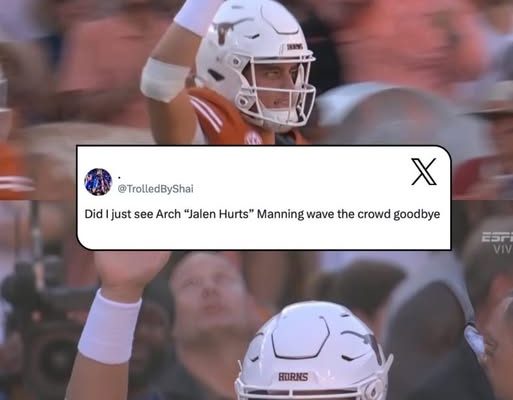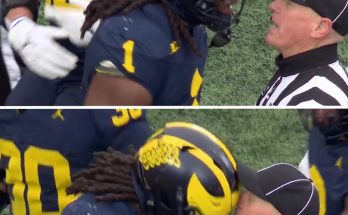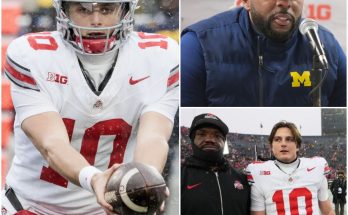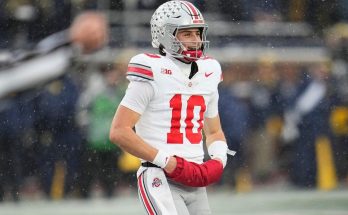When Penn State’s athletic department announced the dismissal of long-time head coach James Franklin, they set the stage for one of the most consequential coaching searches in recent memory. Now, amidst swirling speculation and lofty expectations, two names have emerged as the apparent frontrunners to take over the Nittany Lions’ storied football program: Curt Cignetti and Matt Rhule. Each arrives with his own set of strengths, challenges, and narrative appeal. In the weeks ahead, Penn State’s decision will carry more weight than usual, for its signals about ambition, identity, and trajectory will echo far beyond State College.
Curt Cignetti, currently the head coach at Indiana, has been one of the steadiest success stories in recent years. A veteran of lower-division and mid-major jobs who steadily climbed the ladder, Cignetti is now proving he can sustain performance at the highest levels. His record is compelling: over his coaching career, he has amassed a strong win-loss mark even when resources or expectations were modest. Wikipedia+2Onward State+2 Since arriving at Indiana, he has helped transform a program once relegated to underperformance into a serious contender, drawing attention for his ability to overachieve and to build culture. Onward State+2ESPN.com+2 For Penn State, a program with entrenched tradition and regional footprint, a coach like Cignetti provides the promise of continuity plus surprise.
Matt Rhule, meanwhile, offers a narrative perhaps even more resonant with the Penn State faithful. A former walk-on linebacker for the Nittany Lions, Rhule has always maintained a personal connection to the institution. CBS Sports+3Wikipedia+3ESPN.com+3 That bond gives him instant credibility, as someone who understands the culture, the expectations, and the weight of the Penn State name. Moreover, Rhule has proven his ability to rebuild and reinvent programs: his tenures at Temple and Baylor show a pattern of taking struggling teams and progressively elevating them, and now at Nebraska he appears to be guiding another turnaround. SI+3CBS Sports+3CBS Sports+3 His ties to Penn State go beyond sentiment: his formative years as a coach included a stint as a volunteer assistant with the program, and his regional recruitment reach and national experience place him among the few with both inside knowledge and broad ambition. CBS Sports+2ESPN.com+2
The competition between the two is more than just wins and losses. At the core, Penn State must decide whether it wants a coach whose current work is ascending (Cignetti), or one whose history and connection match its traditions and unmet ambitions (Rhule). Cignetti’s case is grounded in his recent success and obvious momentum. He is already coached at the FBS level, has demonstrated resourcefulness, and has earned respect in a conference where success is hard to come by. His trajectory has been upward, and he enters the conversation with fewer question marks about buy-in or institutional fit. But he also carries drawbacks: he is under contract at Indiana, and extracting him would require paying a significant buyout. Reports suggest Penn State would likely owe Indiana around $10 million to secure Cignetti’s services, possibly even more depending on timing and contract clauses. Onward State Even beyond financials, some may view him as an outsider at the highest level compared to coaches who have already navigated the peaks of major college football.
On the other hand, Rhule’s strengths play directly to what many in the Penn State community crave: a coach who understands what it means to wear blue and white, who can recruit from Pennsylvania and beyond, and who has already proven he can transform programs. His name recognition and alumni status give him a head start with stakeholders, fans, and potential recruits who may be swayed by identity. But Rhule also faces significant hurdles: he is deeply embedded at Nebraska now, under a long and lucrative contract (reportedly about $74 million over eight years), which carries its own financial implications. SI He would likely owe Nebraska a $5 million buyout if he departs before a certain date. CBS Sports+1 Additionally, some analysts warn that Rhule’s particular skill set—rebuilding struggling programs—might not align perfectly with Penn State’s current status, which is strong in many regards but faltering in a few key areas. CBS Sports
Penn State’s athletic director, Pat Kraft, has his own relationships in play. His connection to Rhule goes back to their time at Temple, where Kraft was AD and Rhule head coach. ESPN.com+2CBS Sports+2 That inner trust would be a huge advantage in negotiations, especially when the stakes are as high as they are now. However, Kraft also has to balance optics and expectations: the fan base will demand that the hiring process reflects ambition rather than nostalgia or sentiment. The university’s recent investments in facilities, NIL infrastructure, and visibility mean that the next hire must be capable of operating on a national scale. ESPN.com
Another variable is timing. Indiana will resist losing its head coach if the season is still underway, and negotiating a transition will require care. Cignetti could reasonably question whether leaving his current trajectory is worth the leap, especially if the new job comes with demands for immediate returns. Rhule, in contrast, must consider how leaving Nebraska mid-project would be perceived and whether the move would disrupt momentum. The financial ramifications of changing employers midseason—or even at season’s end—must be factored into any decision. SI+2CBS Sports+2
From a recruiting standpoint, both candidates bring compelling strengths. Cignetti has shown he can win where resources are limited, and a coach with his track record could attract undervalued players who buy into a mission. Rhule, however, offers name value, network connections, and instant rapport in the Northeast and Mid-Atlantic recruiting corridors. Penn State must decide whether to prioritize the coach who currently maximizes every resource or the one who can elevate recruitment ceilings and outreach.
One important question is whether Penn State should look for a coach who can “win now” or one who might need a transitional period. Franklin’s end was sudden: after three straight losses, including to unheralded teams, the urgency for stability is high. The next coach must rally the program quickly. Cignetti’s recent turnarounds give him a credibility in rapid impact. Rhule’s track record, though impressive, has often been measured in multi-year rebuilds, which could raise questions about patience and pressure. CBS Sports
Another factor is the optics of the hire. Choosing Cignetti would present Penn State as a visionary agency: willing to reach for coaches beyond the obvious and reward performance. Selecting Rhule would signal a return to identity, tradition, and roots—a homecoming narrative that might invigorate donors, alumni, and the fan base. Both paths carry political weight and potential pushback.
It is also worth noting that neither path is guaranteed to succeed. The expectations at Penn State are enormous: regular Big Ten contention, national relevance, and pressure in top matchups against Power Five rivals. The missteps of Franklin—especially in big games—will hang over the new hire regardless. The incoming coach must show that he can close at the highest level and manage pressure.
In the final calculations, the athletic department must weigh financial cost, cultural alignment, recruiting reach, and turnaround potential. If Penn State opts for the coach with current momentum, Cignetti may have the edge. If they value identity, internal currency, and deep ties, Rhule may be irresistible. The process will be delicate: contracts will have to be ironclad, transition plans carefully managed, and expectations calibrated.
Regardless of who ultimately gets the job, the mere fact that Cignetti and Rhule are considered finalists speaks to how far this program still looms in the college football landscape. Whether Penn State moves in the direction of the rising overachiever from Indiana or reinstates one of its own through a storied alum, this decision will define the next decade of Nittany Lion football. The fan base, the players, and the broader Big Ten are watching.



